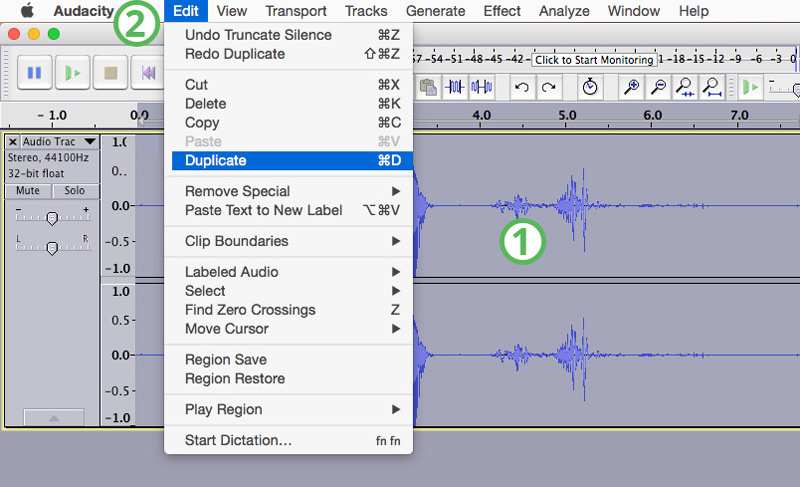

- #Record computer audio using audacity and sound siphon software#
- #Record computer audio using audacity and sound siphon code#
- #Record computer audio using audacity and sound siphon license#
- #Record computer audio using audacity and sound siphon download#
Give specific examples of the actual benefits of telemetry in concrete terms (e.g. Make very clear from the beginning that this is opt-in (Audacity failed this, IMO) Communicate clearly and discuss openly before writing code, asking for feedback from the community. To minimize blowback, you need to show that you respect user's privacy: Lord knows, if we try to carve out any concept of legitimate telemetry, adtech companies will immediately go about probing it for loopholes. And perhaps we want to say that it's easier to try and shut down all telemetry than it is to distinguish legitimate telemetry from abusive telemetry. I suppose a lot of this is maybe just a halo effect due to all the (quite legitimate) upset about surveillance capitalism? Which is fair. (Well, 30 years ago it was another town, but still.) And, while storing that information isn't strictly necessary, I'm also more-or-less 100% confident in saying that anyone who might want to keep tabs on me already knows I live in Chicago, and that would have been true 30 years ago, too. Yes, they probably also know that I usually connect from an IP address in Chicago.
#Record computer audio using audacity and sound siphon code#
What's way more revealing about me as a person is all the stuff that GitHub is collecting and storing about me because storing that information is exactly what GitHub is for: code I've written, interactions with people in issue discussions, billing information related to my account, projects I've starred, etc. Whatever telemetry GitHub collects is probably the least interesting stuff they have on me. It is, at the very least, very tone-deaf/stupid from them to add telemetrie only one month after (IMO) showing their hand for what we can expect for the future. Now, barely a month later, they add the option of collecting data from users and people aren't happy. What MuseGroup forgets to mention, is that they are a for-profit company ( ) while the FSF is a foundation (specifically a 501(c)(3) non-profit organization), which shifts their incentives a lot.

(it's also easier for them to defend GPL related lawsuits if they are the copyright holders)
#Record computer audio using audacity and sound siphon license#
Having a CLA isn't a problem in and off itself, for example, as they correctly state: the FSF requires a CLA because they want to license all their stuff as "GPL 3 or above", which is only possible using some CLA-mechanism. (They have already confirmed a cloud-service for Audacity, which for me already reeks like "we want to have closed-source tools that use our open-source contributors code"). They currently say they're not going to do that, but if they wanted to (and Muse-group is for-profit) they could without the contributor having any recourse.

(it also allows for dual-licensing a paid version) Muse group, a russian for-profit company that seems to have a shell-headquarters in Cyprus (see ), recently acquired Audacity as part of their expansion into the broader audio-production world.Īs a first action, they changed their contributor License Agreement making a future change from a GPL license to a closed-source License possible.
#Record computer audio using audacity and sound siphon download#
The only reason to not publish all crash reports openly on the web for anyone to download should be undiscovered security vulnerabilities. If I have access to the crash reports, can I do business intelligence gathering? Can I discover information which gives stock market insights? If the answer is yes, then you are collecting too much information. If I know that 80% of users who download version 1.2.3 got a crash within 5 minutes, which living person can I identify with it? If I however get download logs of IP addresses, browser identity tags, file names, windows profile names, user directory names (and so on), then that cash report is providing unnecessary personal data. Live user telemetry does not have to mean Personal Data. If the information is interesting for a third-party then the collection filter is not fine grained.
#Record computer audio using audacity and sound siphon software#
Software should not collect information in the first place if it may get necessary for law enforcement, litigation and authorities to demand it. In almost every single privacy focused discussion, one side always built up this argument about "stealing secrets" in order to provide counter arguments.


 0 kommentar(er)
0 kommentar(er)
